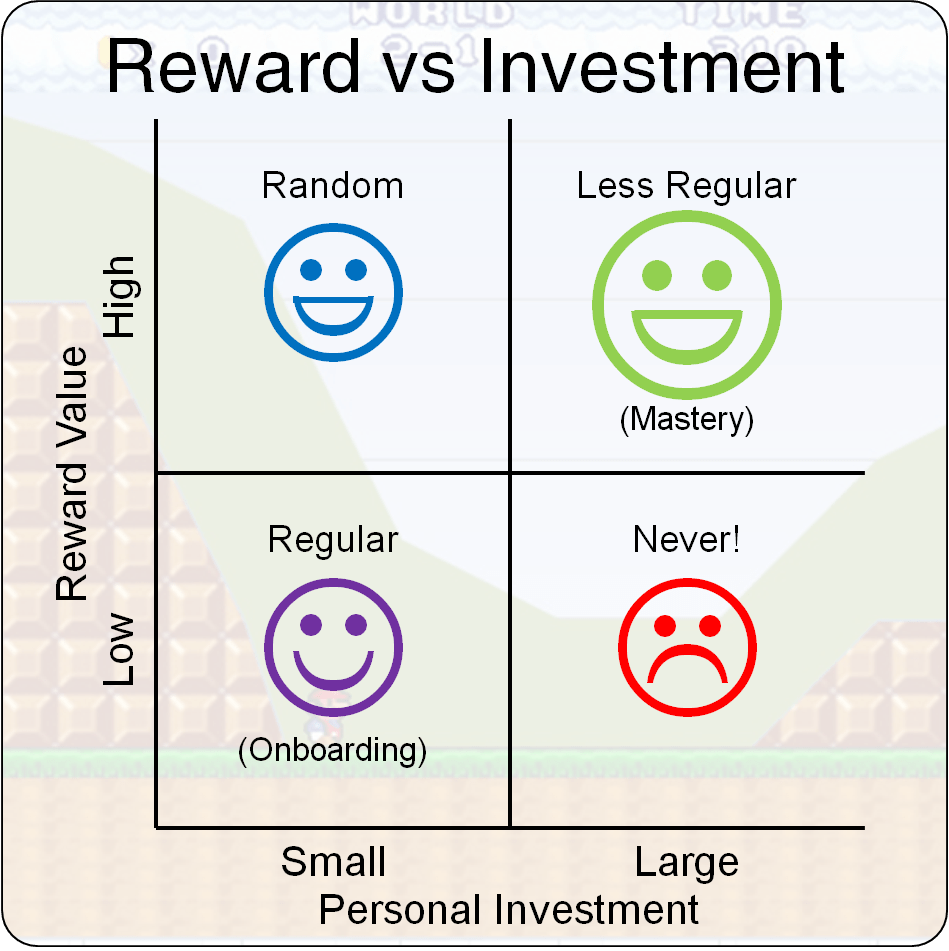A while back I wrote an article about how you have to balance the reward value of activities against the value to the client, user and effort.
The basic idea was that if a user has to work hard to get a reward, it had better be worth something. At the same time, if the value of the activity is high to the client, the reward should also be worth having.
At the time I wrote that, I developed a simple spreadsheet to help me calculate reward values for activities for a client I was working with. I thought I would share that with you to help you with your projects as well.




